Are you feeling frustrated with a recent experience at a social service agency? You're not alone; many individuals find themselves navigating complex systems and sometimes face challenges that leave them feeling unheard or overlooked. Writing a complaint letter can be an effective way to voice your concerns and seek resolution, ensuring that your needs are met. Dive into our article to discover helpful tips and a customizable template that will empower you to express your thoughts clearly and assertively.
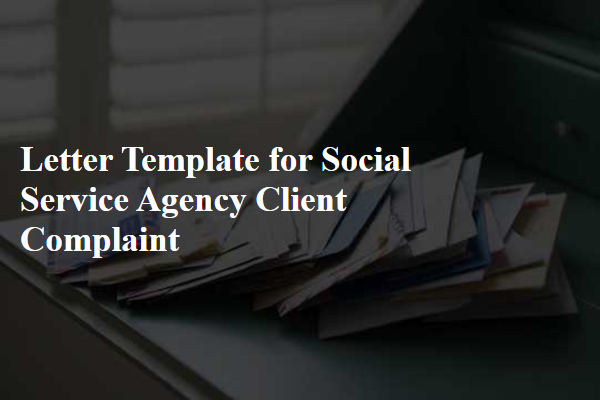
Client Identification and Contact Information
The client identification and contact information section is critical for maintaining accurate records in the realm of social services. Each client, such as individuals seeking assistance from agencies like the United Way or local community service organizations, must provide personal details. This includes essential identifiers like a full name, date of birth (usually formatted as MM/DD/YYYY), and unique identification numbers (for instance, Social Security numbers or client IDs). Additionally, clients should include their current residence address, which might entail street numbers, city, state, and ZIP code, along with contact numbers including home, work, and mobile phones. Email addresses, which are increasingly necessary for communication, also form an important part of this section. Accurate and complete information ensures that complaints are processed efficiently and that clients receive appropriate follow-up services.
Issue Description and Specific Details
A letter template for social service agency client complaint serves as a structured format for clients to articulate grievances regarding service delivery or agency practices. This template guides users in detailing the issue description, including specific incidents that prompted the complaint, such as delays in service provision or perceived discrimination. Clients should include vital information like the date of the incident, names of service providers involved, and any prior communications regarding the issue. Clear articulation of the impact on the client's well-being and expectations for resolution enhances the effectiveness of the complaint process, ensuring that the agency comprehensively understands the concerns raised and can take appropriate action.
Desired Resolution or Action Requested
Clients seeking resolution for complaints with social service agencies may request specific actions, such as a formal review of their case, timely communication updates regarding their service status, or the assignment of a dedicated caseworker for personalized assistance. In some cases, clients might ask for expedited processing of applications or appeals, especially in urgent situations involving shelter or medical assistance. Additionally, clients may seek a thorough investigation into the reasons for their dissatisfaction, along with a written response outlining corrective measures taken to address systemic issues, ensuring that similar experiences do not affect others in the future.
Relevant Supporting Documentation
Clients seeking recourse for grievances against social service agencies often compile relevant supporting documentation to substantiate their claims. Critical documents may include official correspondence (emails, letters) exchanged with the agency, which detail the nature of the complaint, specific dates of incidents (such as service denials or procedural errors), and names of involved personnel (caseworkers, supervisors). Additional evidence may consist of records like appointment notes, service logs, or agency policies, which clarify the expected standards of care. Furthermore, statements from witnesses or other clients experiencing similar issues can reinforce the complaint. All forms of documentation should be organized chronologically and titled appropriately to facilitate the review process by oversight committees or ombudsmen focused on social services.
Professional and Respectful Tone
Clients often encounter issues while interacting with social service agencies, leading to feelings of frustration and concern. An effective complaint might involve describing specific experiences with case management, delays in services, or inadequate communication. These complaints can significantly impact the quality of care provided to vulnerable populations seeking assistance, such as low-income families or individuals experiencing homelessness. Addressing these concerns is crucial for improving agency practices, ensuring accountability, and ultimately enhancing service delivery for clients requiring essential support.
Letter Template For Social Service Agency Client Complaint Samples
Letter template of client complaint to social service agency regarding service delays.
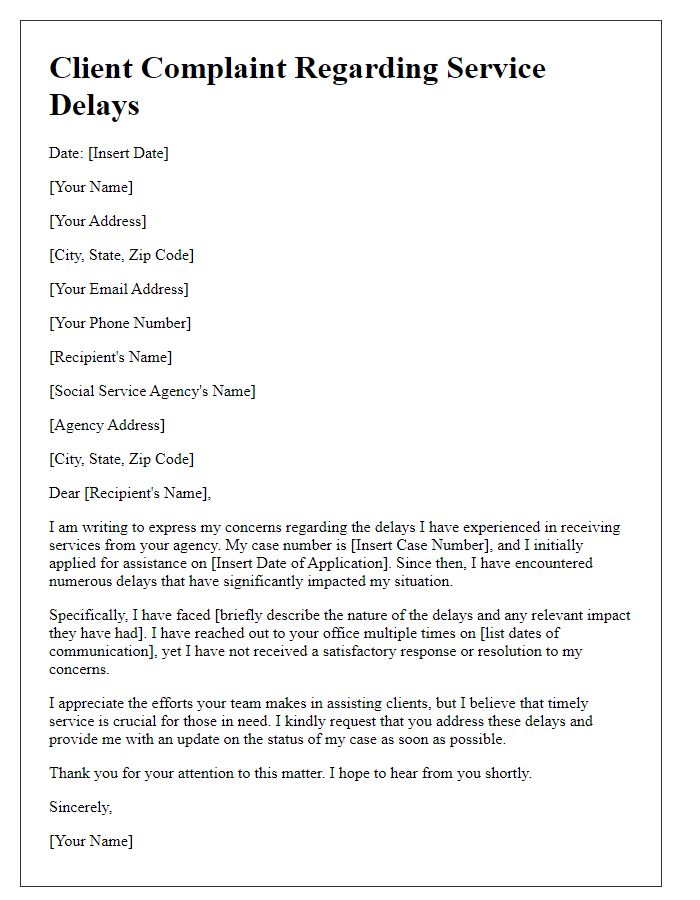
Letter template of client complaint to social service agency concerning staff behavior.
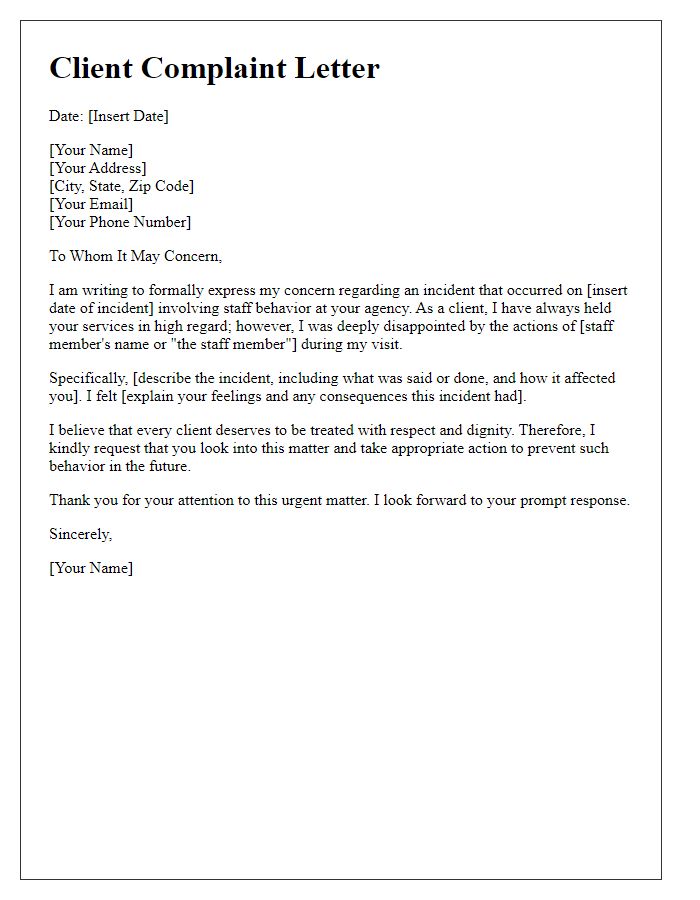
Letter template of client complaint to social service agency about inadequate support.
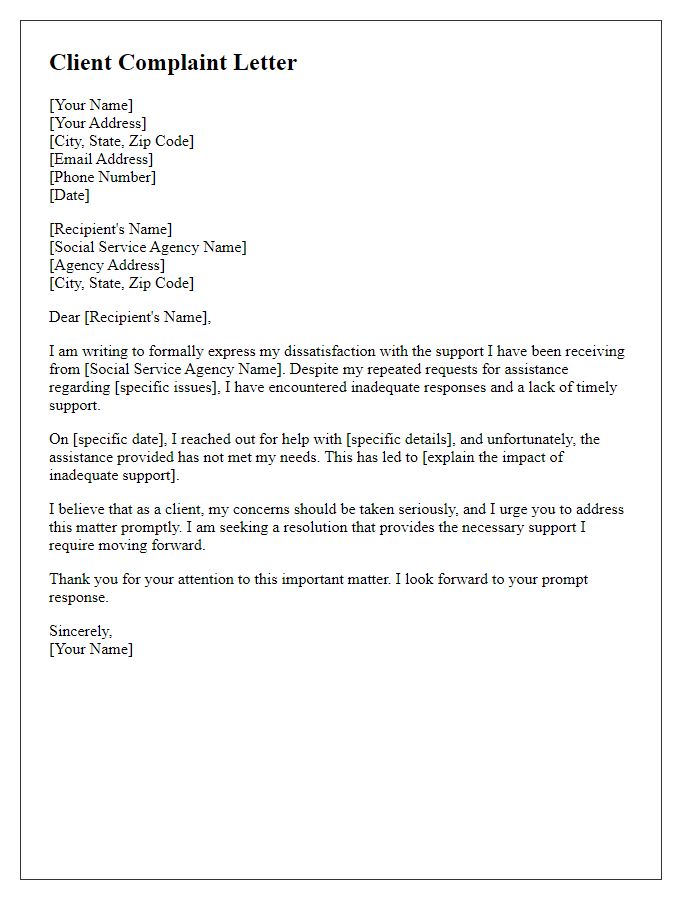
Letter template of client complaint to social service agency related to unmet needs.
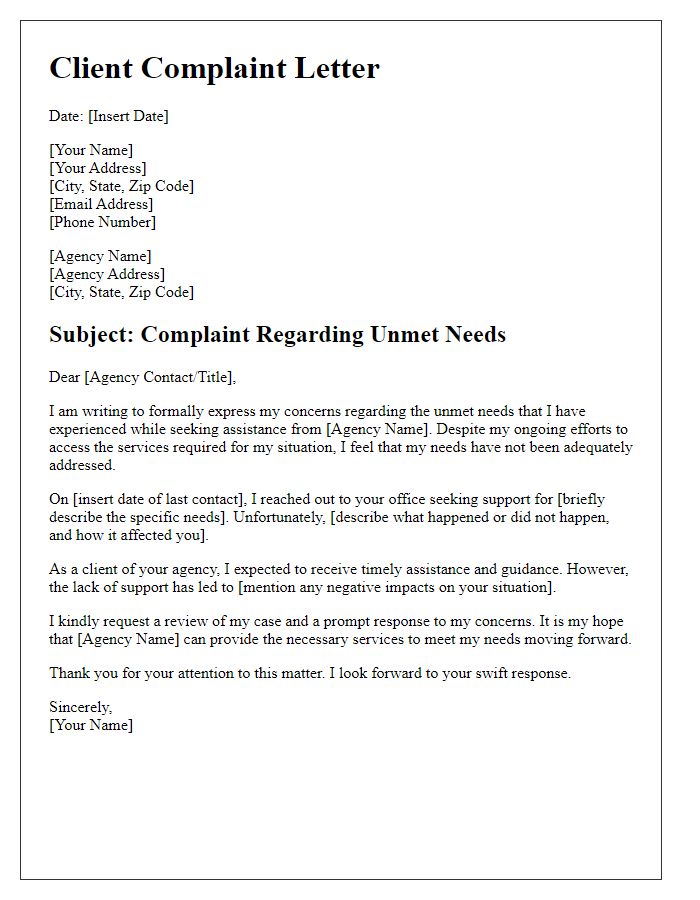
Letter template of client complaint to social service agency focusing on communication issues.
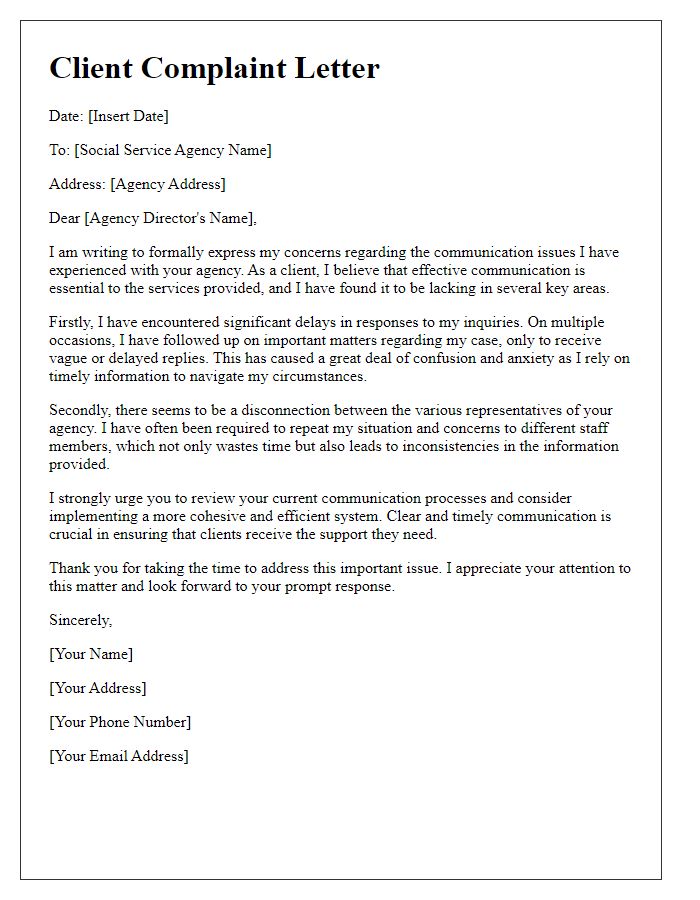
Letter template of client complaint to social service agency expressing dissatisfaction with outcomes.
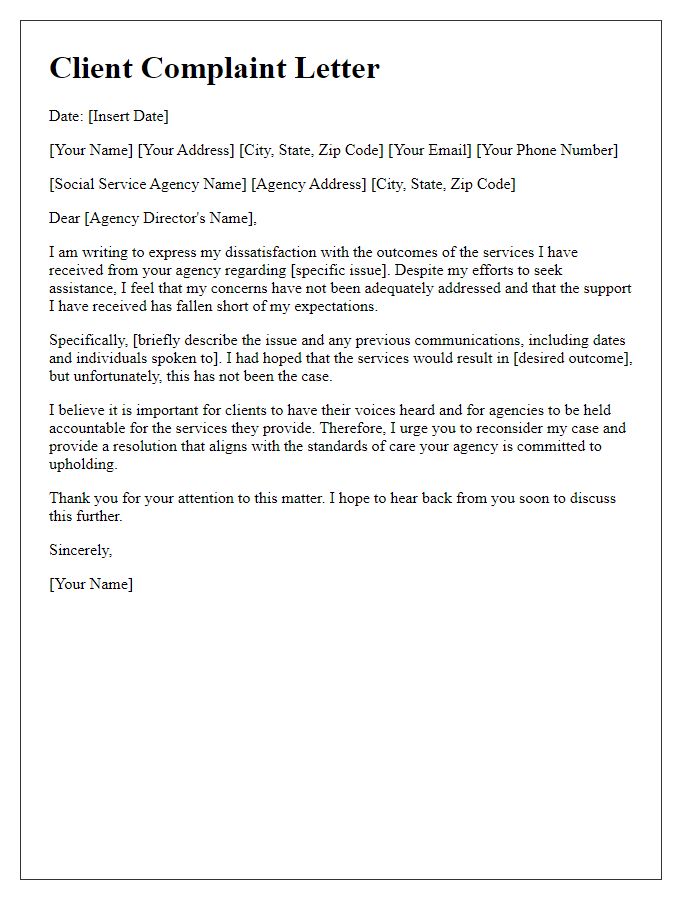
Letter template of client complaint to social service agency highlighting policy concerns.
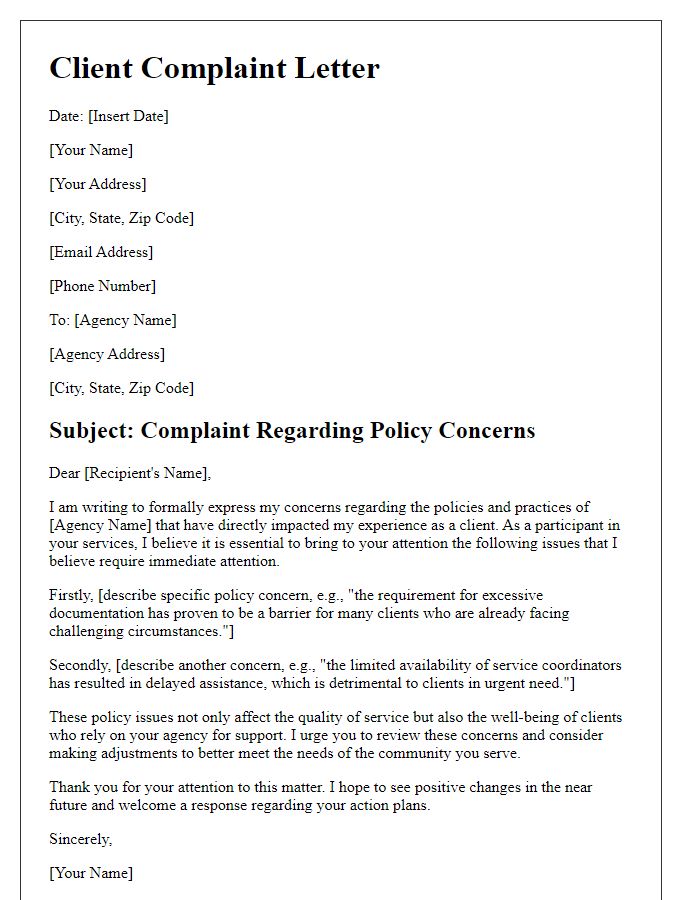
Letter template of client complaint to social service agency regarding missing documentation.
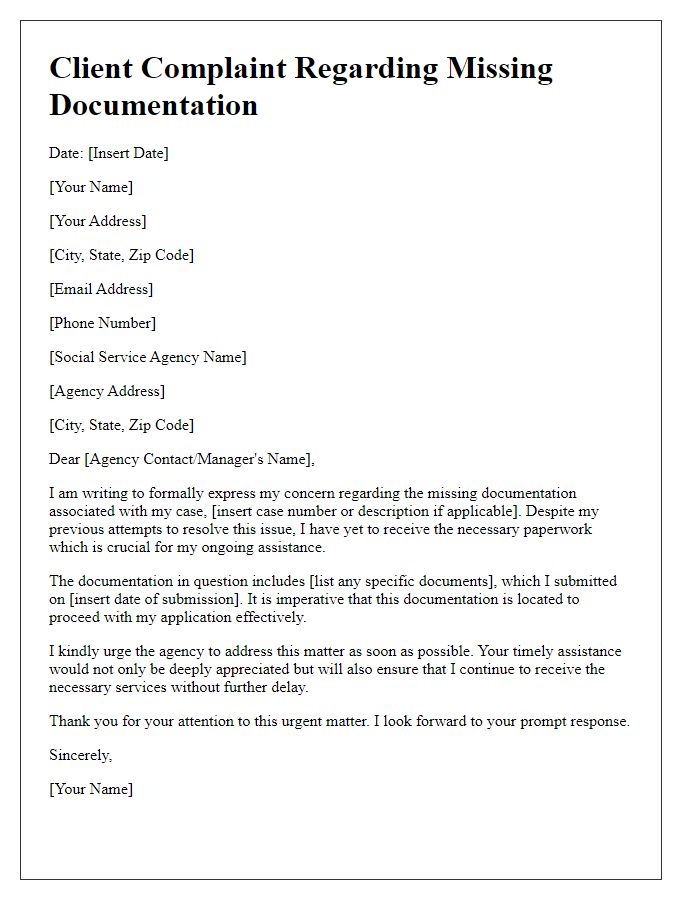
Letter template of client complaint to social service agency noting accessibility problems.
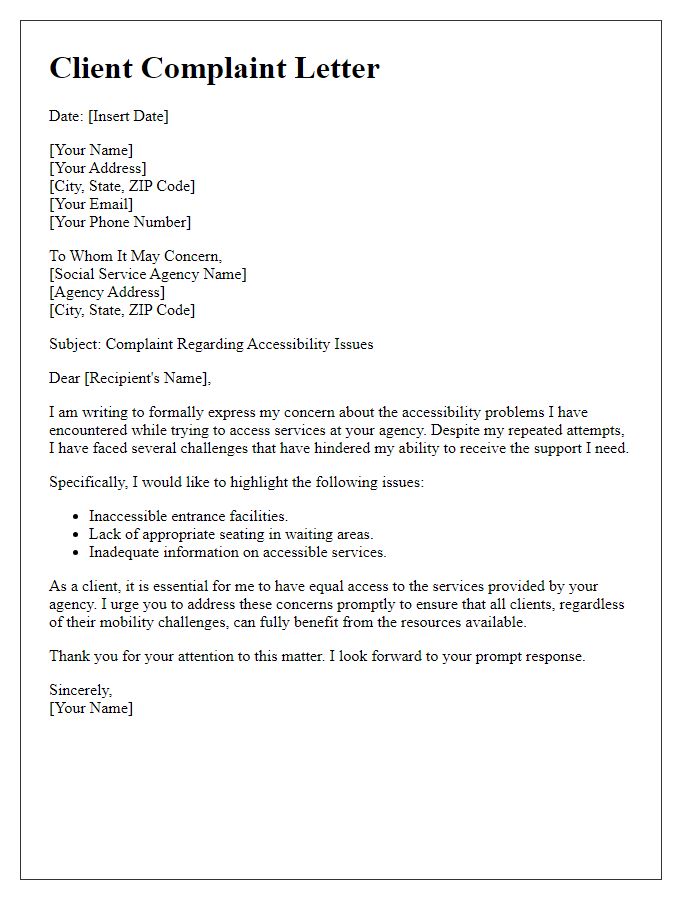

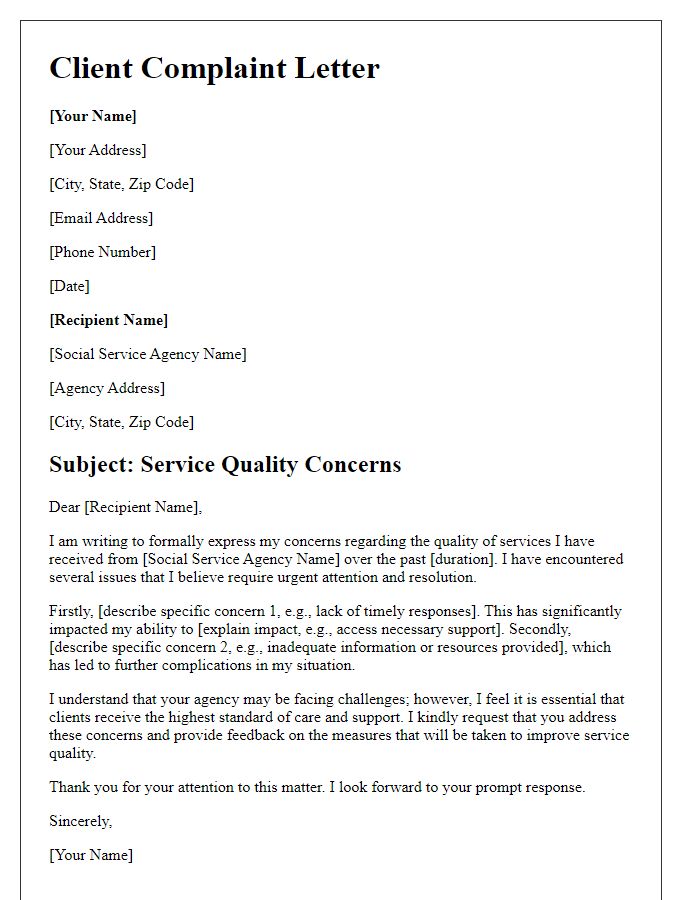


Comments